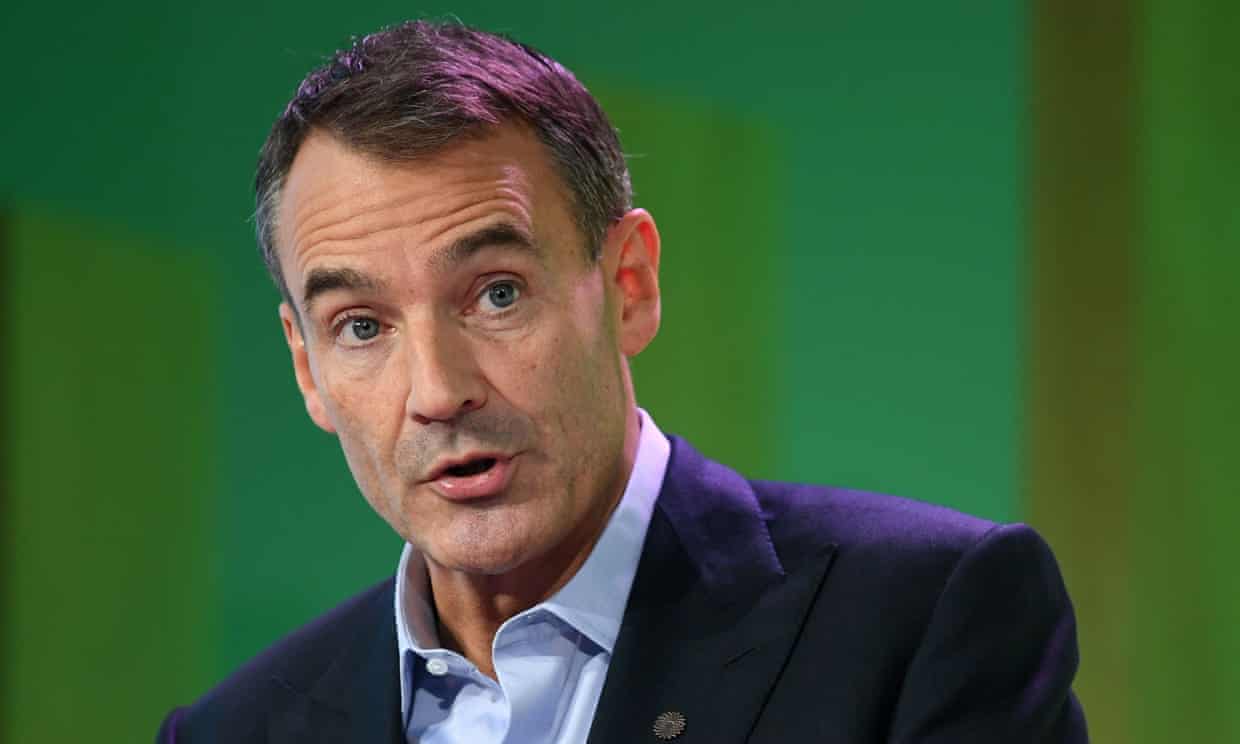
Opinion
Beware oil execs in environmentalists’ clothing – BP could derail real change
by Alice BellIf a company that made its name in oil wants us to believe it can be part of the climate solution, it needs to stop drilling
BP’s got a new boss, Bernard Looney. He doesn’t wear a tie, he’s on Instagram and he’s going to shrink its carbon footprint to “net zero” by 2050. Is this for real?
It’s a sign the tide is turning. Maybe not enough to save us from catastrophic sea-level rises, but a turn nonetheless. The oil industry is incredibly savvy when it comes to public opinion, and can see the steady erosion of its “social licence to operate” (a company’s ability to go about its business without too much challenge). It has been struggling to recruit young people for years, well before the school climate strikes started.
The Royal Shakespeare Company and National Galleries Scotland have both turned their back on BP sponsorship in recent months, and last weekend more than a thousand people turned up at the British Museum to protest at the firm’s involvement there.
BP is not the first oil company to give itself a lick of green paint to appear more acceptable in this era of increasing climate concern. We’ve seen Statoil dropping the word “oil” with the refreshed identity of Equinor, and Dong (Danish Oil and Natural Gas) relaunched as the renewable energy company Ørsted. It’s hard to see Equinor as anything more than greenwash while it’s still drilling the Arctic, but Ørsted may yet become the world’s first green energy supermajor, betting on the power of offshore wind to eventually see off natural gas. Shell is also keen to show off its green credentials, as anyone who has seen its multimillion pound advertising campaign can tell. It’s scared, or it wouldn’t bother.
BP has been here before, with a £100m “Beyond Petroleum” rebrand in the early noughties. Alongside a new sunflower logo, this emphasised the company’s commitment to wind, solar and biofuels alongside oil and gas, but renewables remained a small part of its portfolio. Clean energy is good for press photos, but not really central to BP’s core business model. Environmentalist Jonathon Porritt originally tried to engage in its initiatives, but turned away in disgust, declaring it was impossible for today’s oil majors to change at the radical speed required.
If BP is serious about rising to the challenge of the climate crisis, it will have to go the extra mile to convince us. It’s one thing for a computer company to make bold claims on climate action (as Microsoft did last month, announcing it would be “carbon negative” by 2030), but it’s another for an oil major. And yet, so far, Looney’s new vision is light on specifics. Apparently we have to wait until September for the details, but it does seem clear that BP will still be selling oil and gas.
BP seems to be banking on the “net” in net zero doing a lot of heavy lifting. Which leaves the rather basic question: how does it plan to balance out carbon emissions produced by burning fossil fuels? Trees are great for helping us mop up some of the damage we’ve already caused, and various other technological options might turn out to be useful on a small scale. Capturing carbon from the air and using it to make plastic; adding iron to the ocean to speed up its ability to absorb carbon; or genetically modifying trees so they have larger, carbon-sucking roots, for example. But a lot of this is still a bit sci-fi, and none of it is ever likely to soak up the quantities of oil and gas BP plans to keep selling.
Looney says he wants to help the world to get to net zero, not just BP. It is, apparently, shutting down the “Possibilities Everywhere” ad campaign that showcased its (relatively small-scale) work on clean energy, instead funnelling resources into campaigns that foster “the right kind of change”.
This is the part of the project we should perhaps be most wary of. It’s worth remembering that with the Beyond Petroleum push in the noughties, BP popularised the idea of a “carbon footprint”. The approach seemed to mean well but was effective at individualising the causes of climate crisis, pulling attention away from the sorts of large-scale change that would really challenge the fossil fuel companies.
Beware oil execs in environmentalists’ clothing. They may simply wish to seize the growing energy for change and steer it towards their own ends: the continued burning of fossil fuels.
The most offensively disingenuous idea at the heart of this flashy new strategy is that BP finally “gets” the climate crisis. Oil runs off many things, and one of them is strong science. Fossil fuel companies have long known their business was dangerous and yet they chose to keep profiting off it. Indeed, new data shows quite how much they profited ($332bn in the last three decades in the case of BP). BP hasn’t suddenly got a dose of the climate heebie-jeebies, it’s just worried that, finally, you have.
The Instagramming, tie-free Looney might reflect a new phase in the oil business, but is it still business as usual underneath? It’s hard not to see the rhetorical use of the “net” in net zero as a bit of smoke and mirrors, a way of making it sound as if it is taking the crisis seriously while avoiding the simple truth: we need to stop burning fossil fuels.
If BP really wants us to believe that a company that made its name in oil can be part of the solution, it needs to stop drilling. It’s as simple as that. Hold retirement parties for refineries and retrain workers for a zero-carbon future, and do it fast. That might actually be something worth Instagramming about.
• Alice Bell is co-director at the climate change charity Possible